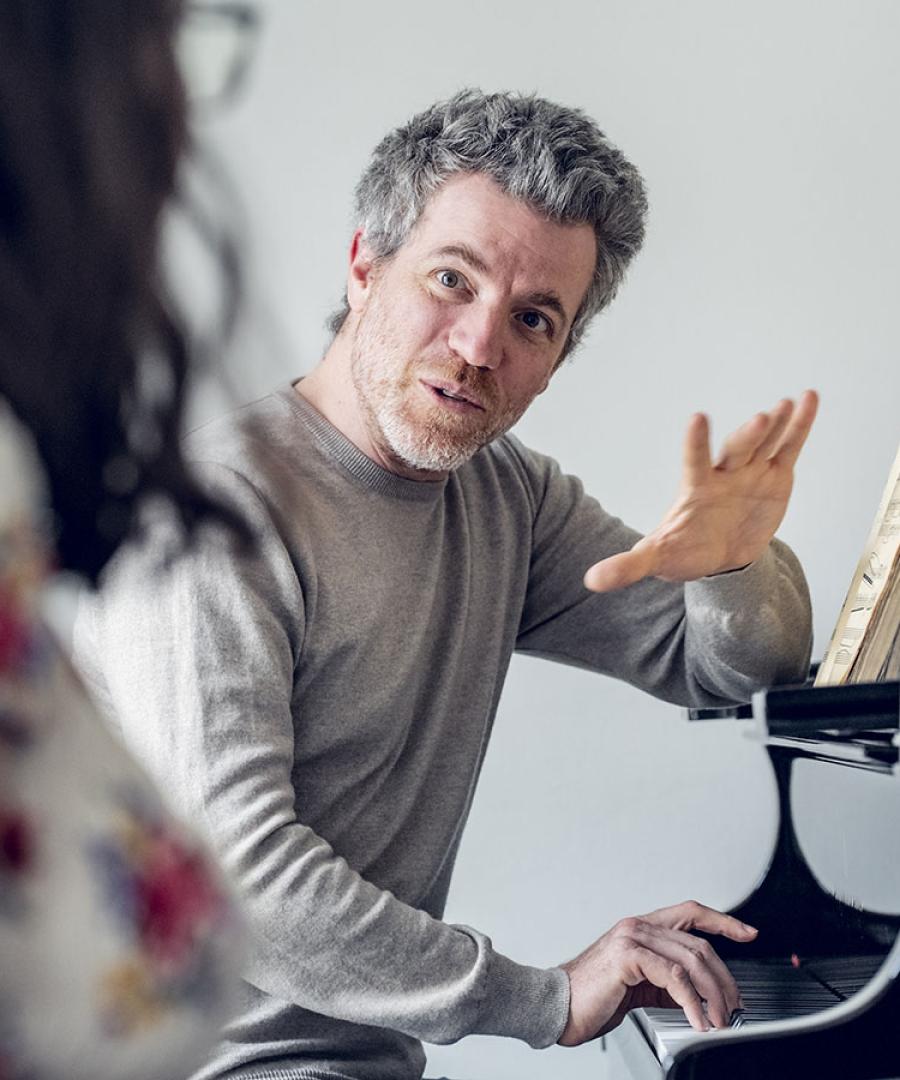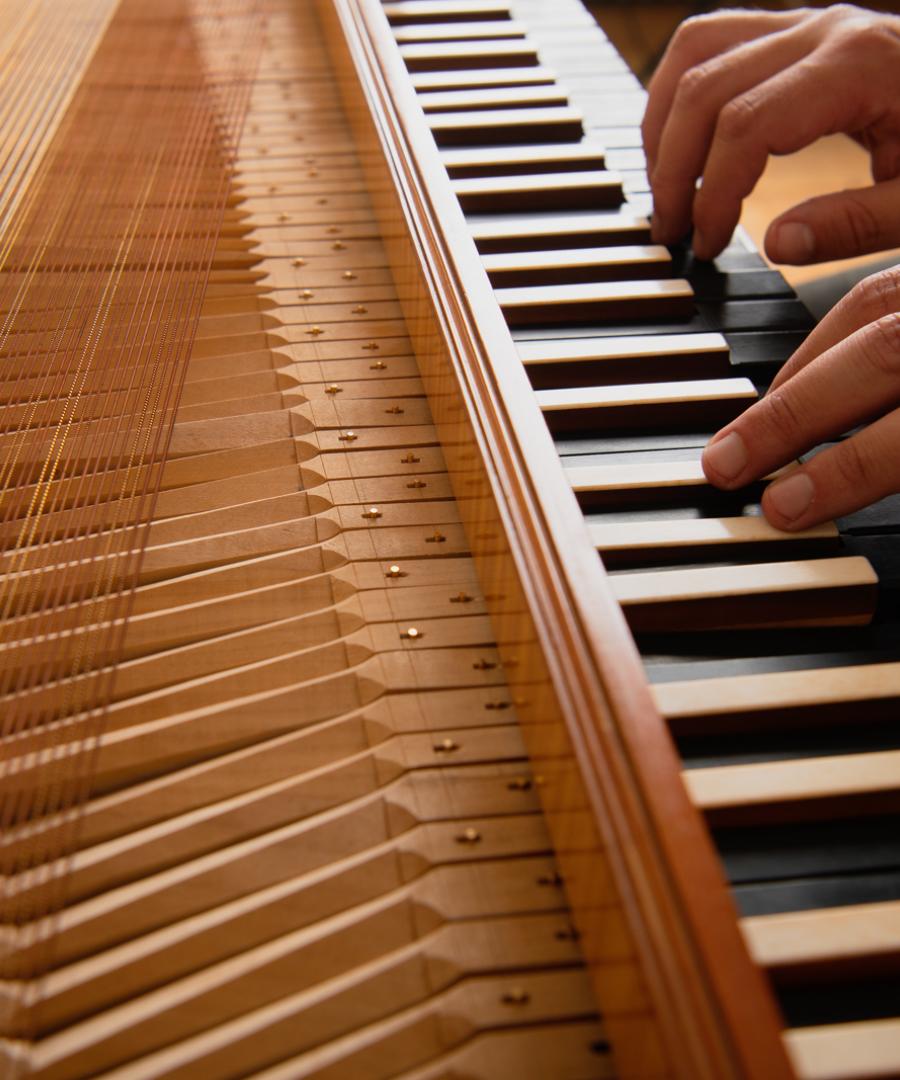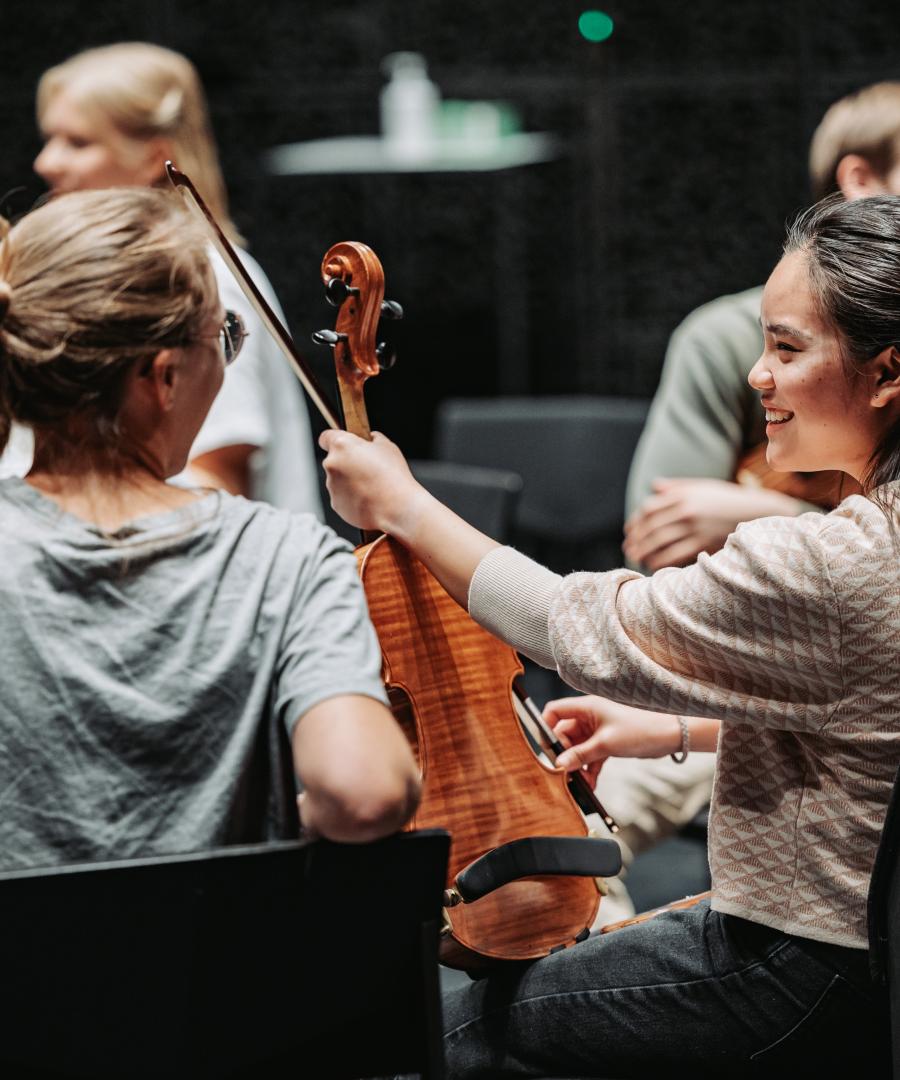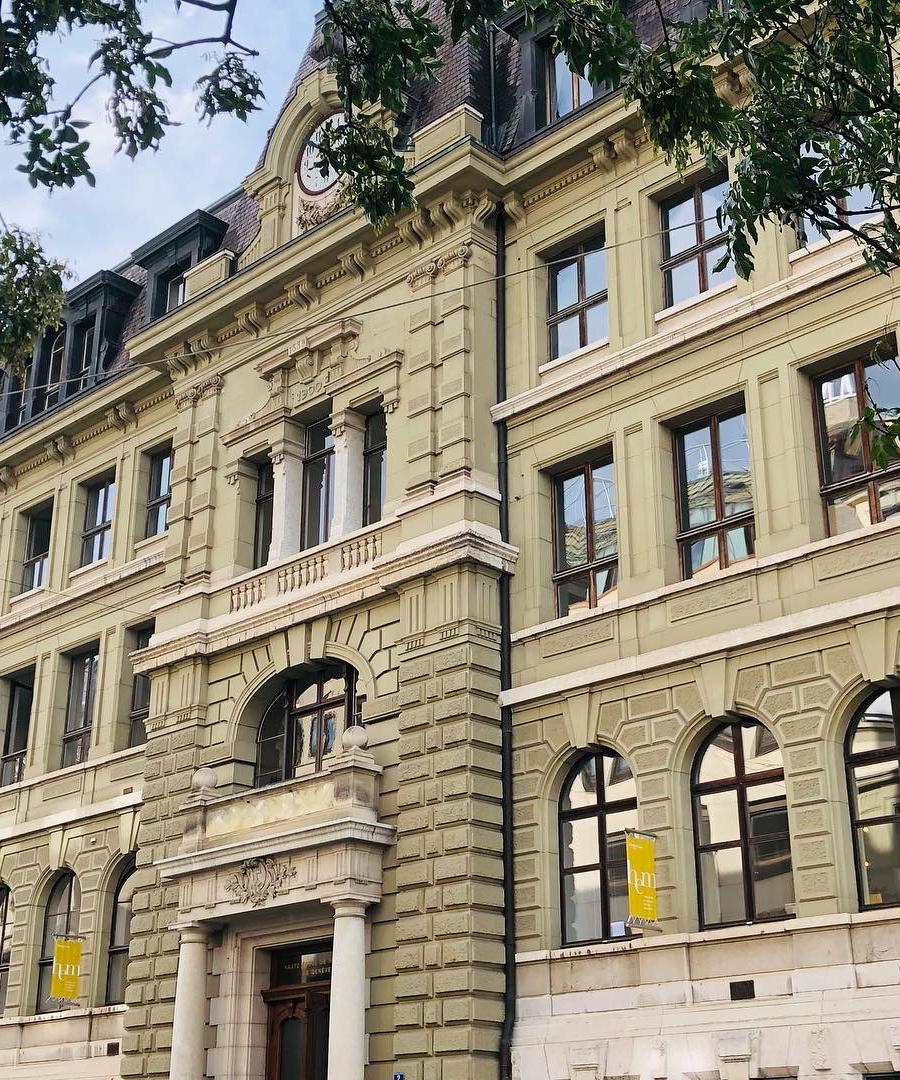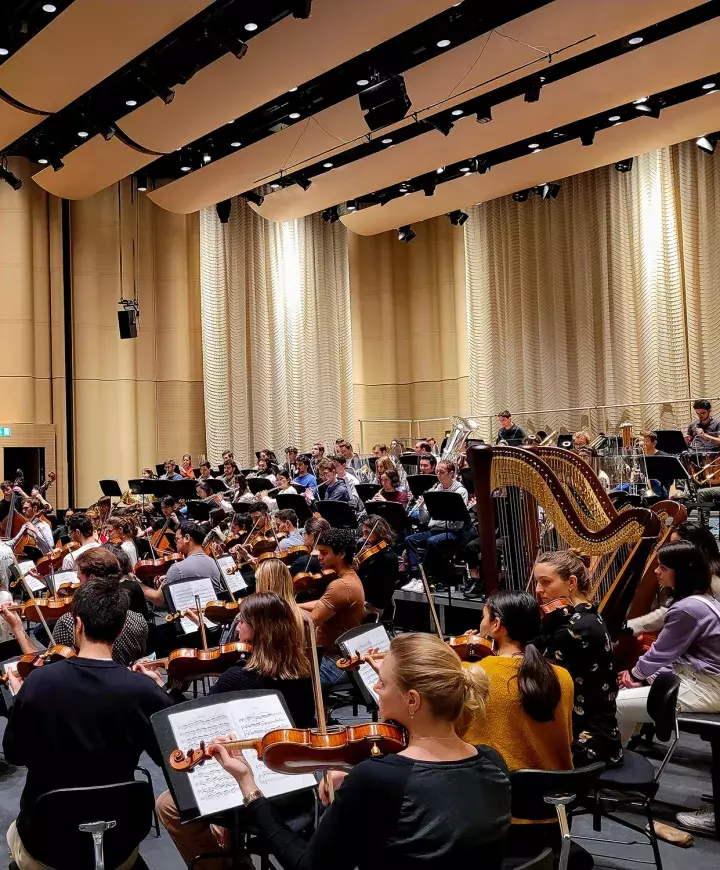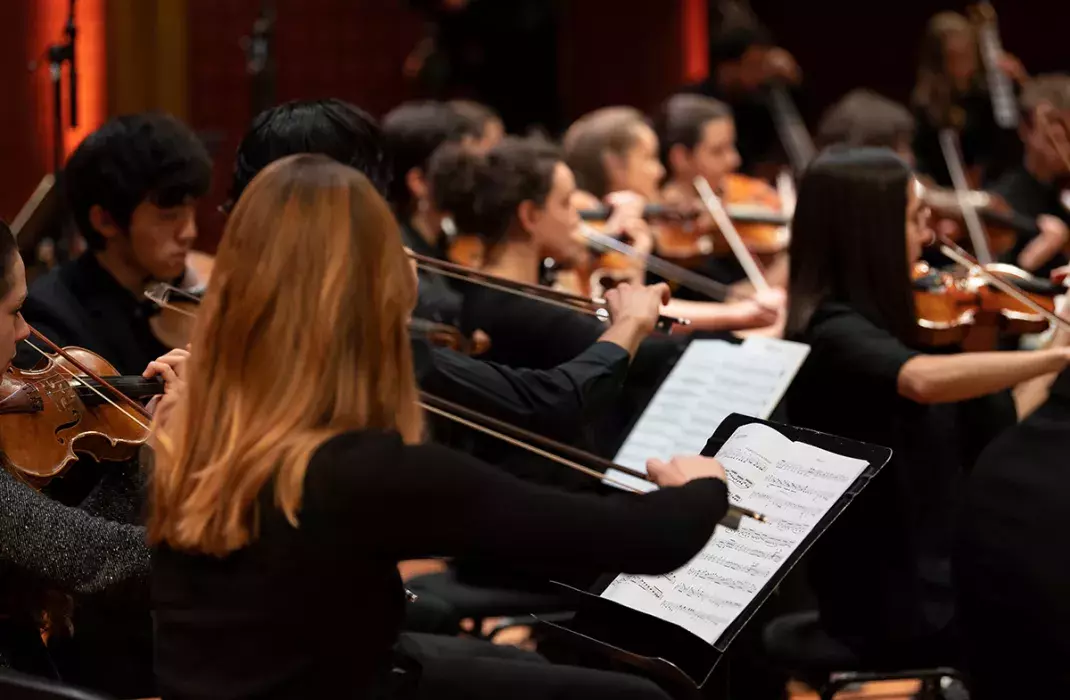- Studies
- Disciplines
- Research
- Events
- The school
Orchestra
This field prepares students who are instrumentalists for the profession of orchestra musician.
The role of orchestra musician is demanding at several levels:
- high-level instrumental mastery and consistency in the instrumental level;
- large and varied artistic and musical knowledge;
- management of stress and peer pressure;
- individual and collective responsibility (belonging to a group, to an institution);
- special working hours;
- high level of sound;
- mobility;
- etc.
In recent years, big changes have been taking place within professional orchestras. The specializations that some of them have (early music, contemporary music, etc.) demand great flexibility and skills that are as broad as they are diverse (playing of historical instruments, mastery of contemporary languages, knowledge of styles, etc.). The musicians are also expected to master so-called ‘special’ or ‘complementary’ instruments (E-flat clarinet or bass clarinet, cor anglais, oboe d’amore, contrabassoon, natural trumpet, natural horn, sackbut, etc.). The inclusion of students in professional orchestras within institutions, in the context of internships and coaching from experienced musicians, are therefore essential in this training.
Study plan
Abbreviations :
e = marked exam
p = validation by participation
rs = internship report
ce = co-assessment
cc = continuous assessment
SA = autumn semester
SP = spring semester
A1, A2, etc. = level of the course (first, second year, etc.)
S1, S2, etc. = level of the course (first, second semester, etc.)
Admission criteria
In addition to the general criteria for access to the Master’s, the following special conditions are requested:
- Orchestra experience,
- Playing an additional instrument,
- Very good level of reading.
The procedure includes, in addition to the instrumental test, a performance in front of a delegation of professional orchestras hosting students of the HEM as internships.
Study programme
Main training
The main training module is centred around the individual instrument class, lasting 80 minutes per week. Part of the lesson (20 minutes) is reserved for specific preparation for the role of orchestra musician and for competitions (orchestral excerpts and reading). This special preparation may be entrusted to a different professor if necessary.
Special training
30 minutes per week, for 3 terms, are dedicated to the study of secondary and/or historical instruments, in accordance with a specific programme for each instrument. The module also includes lessons on orchestral excerpts, by register or by section.
To prepare for their future professional practice, the students are included in numerous orchestral projects at the school insofar as is possible, as temporary conductors or soloists. They are also asked to do the kinds of tasks that are inherent to working in an orchestra (bow strokes, for instance). The sessions with the HEM’s orchestra will be supervised by a mentor, professor(s) or coordinator, who draws up a report completed by the orchestra conductor. As far as possible, the students take part in at least one project run by the Early Music Department.
In order to offer the best possible professional integration to the students, the training also entails internships in professional orchestras at institutions. The student is then placed under the responsibility of a mentor (individual preparation for an internship, monitoring and internship report).
The orchestras with which the HEM collaborates are those listed below: :
- Orchestre de la Suisse Romande,
- Ensemble Contrechamps,
- Orchestre de Chambre de Genève,
- Orchestre des Pays de Savoie,
- Ensemble symphonique neuchâtelois,
- Other possible form of validation: orchestra academies in Switzerland.
Complementary and optional training
In this module, a portion of the free choice is left to the student. Depending on what their Master’s project is and what their professional project is, students can choose between several topics proposed by the HEM’s tutors within the framework of research workshops, between several classes that could supplement their training and between several methods of obtaining validation of their preparation for the profession.
Master’s Project
The Master’s project involves:
- an artistic production at two recitals, with one taking the form of a simulation of an orchestra competition;
- a written work showing the musician’s capacity for critical thinking.
